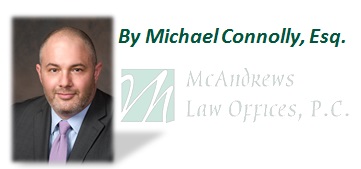SUPREME COURT TO WEIGH IN ON THE LEVEL OF BENEFIT REQUIRED FOR FAPE
The United States Supreme Court is about to weigh in on a long standing split among the federal circuit courts of appeal on the question of what level of benefit is required for the provision of a FAPE (Free and Appropriate Public Education) to students with disabilities, recently agreeing to hear the case of Endrew v. Douglas County School District.
The Endrew case involves a student diagnosed with Autism and Attention Deficit Hyperactivity Disorder (“ADHD”) who had received special education services through his school district since preschool as an eligible student under the Individuals with Disabilities Education Act (“IDEA”). After a very difficult 4th grade year for Endrew (“Drew’), his parents voiced disagreement with the school district’s program, and ultimately decided to withdraw Drew from public school and placed him in a private school for children with autism. Following Drew’s placement in the private school, the parents sought tuition reimbursement from the school district. After a three-day administrative due process hearing, an administrative law judge (ALJ) denied the request finding the District had provided Drew with a FAPE. The parents next filed suit in federal court for judicial review of the ALJ’s decision. The district court affirmed, and the parents appealed to the United States Court of Appeals for the 10th Circuit, which also affirmed the lower court’s decision. The central issue in the case was the level of benefit that Drew or any student is entitled to receive as part of FAPE under the IDEA.
In light of the significance of the IDEA’s FAPE mandate, one might reasonably assume that FAPE and what it guarantees to students with disabilities is clearly defined in the Act and uniformly applied across the United States. Sadly, such an assumption would be incorrect. Although the IDEA does include a basic definition of FAPE – which, among other requirements, means the provision of special education and related services that include an appropriate preschool, elementary school, or secondary school education – it fails to define a key term; specifically, the Act does not define what it means to provide an “appropriate” preschool, elementary, or secondary education. Not surprisingly, there has been much litigation over what constitutes a FAPE since the IDEA’s beginning.
The Supreme Court first addressed the meaning of FAPE in the 1982 landmark decision, Rowley v. Board of Education. In Rowley, the Supreme Court, in considering the statutory precursor to the IDEA, the Education for All Handicapped Children Act (“EHA”), determined that Congress’s aim had been to set a “basic floor of opportunity” for disabled children by “providing individualized services sufficient to provide every eligible child with ‘some educational benefit.’” The Court explained that Congress did not “guarantee educational services sufficient to maximize each child’s potential.” Instead, “the intent of the Act was more to open the door of public education to handicapped children on appropriate terms than to guarantee any particular level of education once inside.”
Several circuit courts, including the 10th Circuit where the Endrews case arises, have long interpreted the Rowley Court’s “some educational benefit” language defining a FAPE to mean that the educational benefit mandated by the IDEA must be merely more than “de minimis” or more than trivial educational benefit. However, several other circuit courts, including the 3rd Circuit which includes Pennsylvania, relying on Rowley as well as language in post-Rowley amendments to the IDEA guaranteeing a greater measure of achievement, have adopted a much higher standard – requiring a “meaningful educational benefit.” Courts that have applied the “meaningful educational benefit” standard have found that for the provision of a FAPE a child’s Individualized Education Program (“IEP”) must be reasonably designed to confer significant learning gauged in light of that child’s ability level.
Before it agreed to hear the Endrew case, the Supreme Court invited the United States Solicitor General to file a brief expressing the views of the Obama administration. The Acting Solicitor General ultimately filed a brief that urged the justices to take up the appeal, stating that the Supreme Court “should grant certiorari and overturn the 10th Circuit’s erroneous holding that states must provide children with disabilities educational benefits that are ‘merely … more than de minimis’ in order to comply with the IDEA …the 10th Circuit’s approach is not consistent with the text, structure, or purpose of the IDEA.”
The Endrews case will continue to be closely watched as the Supreme Court’s decision in this case will likely have a significant impact on the provision of special education across the U.S.

